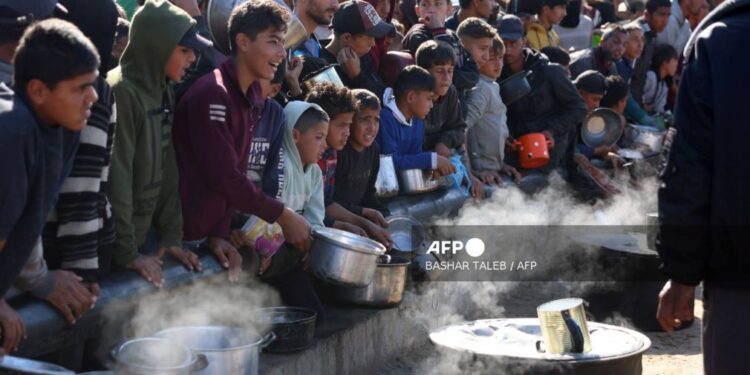Human Rights Watch (HRW) has accused Israel of committing “acts of genocide” in Gaza by deliberately damaging water infrastructure and obstructing access to essential supplies. In a report released on Thursday, the rights group detailed what it described as systematic efforts by Israeli authorities to deprive Gazans of water, resulting in significant fatalities and exacerbating the humanitarian crisis.
The report claims Israel’s actions, which include targeting water facilities and blocking repair efforts, have caused thousands of deaths and will likely continue to do so. It alleges that these acts amount to the war crime of extermination and “acts of genocide.”
Israel’s Response
The Israeli government dismissed the accusations as “appalling lies” and accused HRW of anti-Israel bias. In a statement, Israel’s Foreign Ministry said:
“Human Rights Watch is once more spreading its blood libels to promote its anti-Israel propaganda. This report is full of lies that are appalling even when compared to HRW’s already low standards.”
The ministry added that since the war began, Israel has facilitated water supplies and humanitarian aid to Gaza, even under constant attacks from Hamas.
HRW Report Findings
The report highlights significant damage to Gaza’s water and sanitation systems, including solar panels powering treatment plants, reservoirs, and spare parts warehouses. It also accuses Israel of cutting electricity and blocking the import of essential repair materials.
The HRW report argues that these actions create conditions that intentionally bring about the physical destruction of Gaza’s population, which could be interpreted as genocidal intent under international law.
International Legal Context
Although HRW stopped short of directly accusing Israel of genocide, it urged international legal scrutiny. Under international law, proving genocide requires evidence of intent to destroy a group in whole or in part, a threshold that HRW suggests might be met.
This follows similar allegations made by Amnesty International and a case filed by South Africa at the International Court of Justice last December, which argued that Israel’s actions violated the 1948 United Nations Genocide Convention.
Humanitarian Impact
The report details the dire consequences of water scarcity in Gaza. Medical professionals cited cases of preventable deaths due to dehydration, infections, and unhealed wounds. An emergency room nurse recounted the heartbreaking decisions to forego resuscitating severely malnourished and dehydrated children.
HRW called on the international community to act, urging measures such as halting military assistance to Israel, imposing sanctions, and reevaluating diplomatic relations.
The accusations have intensified the global debate over the humanitarian toll of the ongoing Gaza conflict and the responsibilities of international actors in addressing the crisis.
























